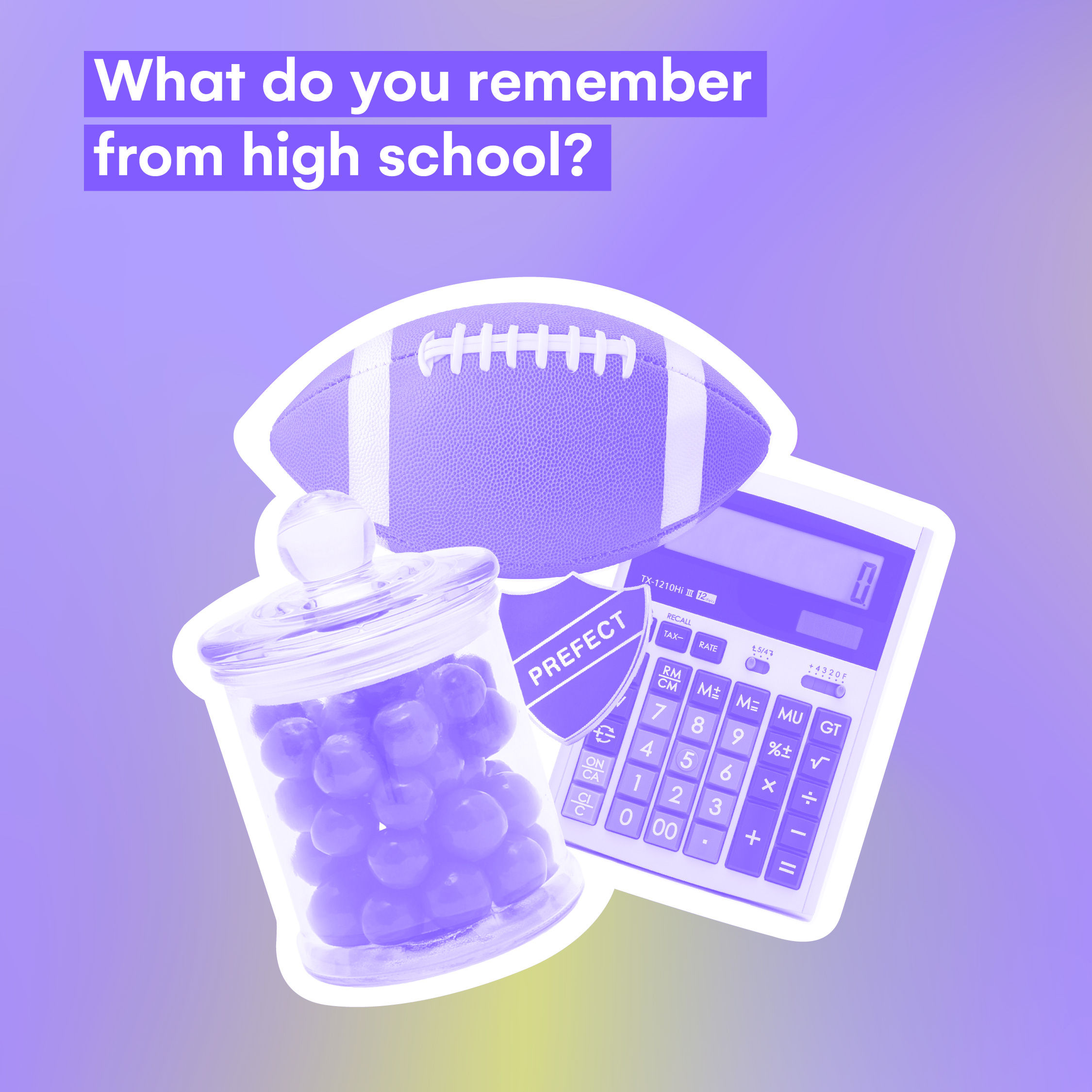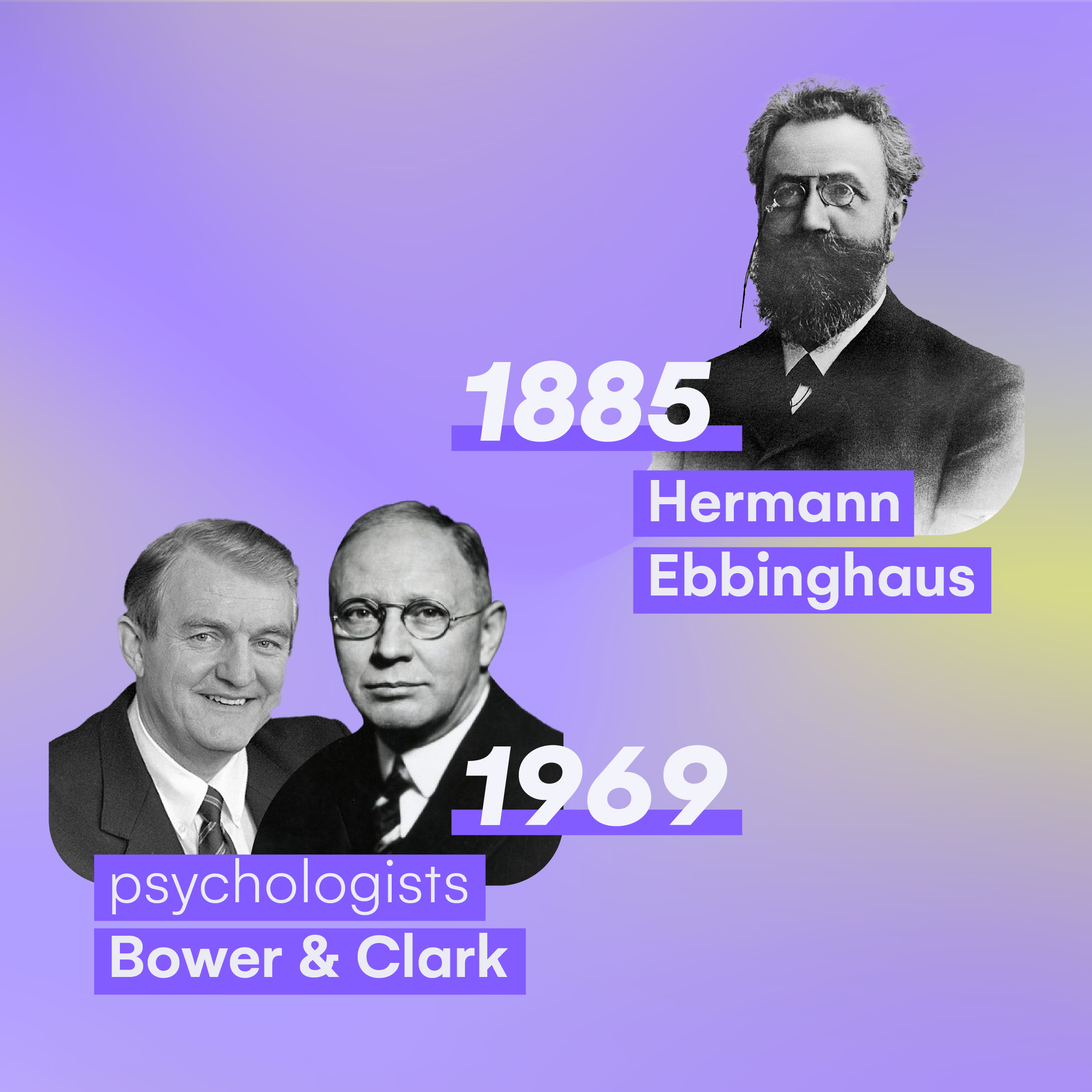What do you remember from high school? I went to an English boarding school – not entirely unlike Hogwarts: sweeping oak staircases, rugby on rainy days, prefects and houses (I was in Reckitt). Our maths teacher had a giant jar of aniseed balls and when it was someone’s birthday he would hand them out – sometimes with a sceptical look on his face.
I’m going to talk about learning. It will probably be the first time you have heard anyone talk about learning – oh, for sure you will have heard people use the word, but they will have been talking about education (by which I mean traditional approaches based on the ‘knowledge transfer’ paradigm).
I will talk instead about how people really learn, how different this is from education, and how AI gets involved. But let’s start with your school days…
I am going to take a guess at what you remember: I think you remember friends – I think you remember teachers (most likely the ones that terrified you or inspired you) – maybe you remember school dinners – certainly you remember your big achievements and terrible embarrassments. You most likely remember the practical exercises that you were made to do – school trips and cutting up frogs. My youngest daughter remembers dressing up in Victorian attire. You remember the things you reacted to.
This is a pretty good starting point, since you can see how it applies to you, your children and your dog (we are not so different after all). But what do you react to? Shall I talk about fly fishing or craft beers, of shoes and ships and sealing wax or cabbages and kings?
If you care about architecture and your friend cares about plants, you may sit side-by-side on a train journey and remember completely different things. Why is that?
But what happens to stuff we don’t care about?
In 1885 Hermann Ebbinghaus asked people to remember nonsense (XFT, GBW, HVZ – that sort of thing). He discovered that people forget nonsense very efficiently. On the other hand in 1969 psychologists Bower & Clark found that if you make unrelated words into a story, recall improved seven-fold!
We experience the world through our (affective) reactions to events around us. These stored emotional traces are what we call memories. They alter our behaviour, they fade over time, and they are used to conjure up stories and images of the things that we experienced – in a way which is always inaccurate and somewhat poetic.
We react to stories and to experiences (and also to simulations of experiences). If you wished to create a learning environment it would be filled with stories and challenges. It would allow you to find your way to the stories and challenges that move you most, and systematically build new cares upon the old. Your love for dance might blossom into expertise in choreography or costume design. Your passion for lego might be the foundation for your career as an architect. Our development is the process by which one concern builds on another – even if that is the excitement that your teacher conveys for their subject.
So how does this relate to Artificial Intelligence? Can AI understand what matters to us? Can it tell stories or alter our experience of the world?
Today, everybody wants to talk about AI, but since they don’t understand learning they struggle to make sense of it: they know what traditional education looks like – little bits of content that we must memorise in order to obediently pass a test of some kind – little fretful episodes – and they imagine that AI will somehow become our taskmaster, spitting ever-smaller chunks of content at us, even as we try to get on with our lives. But this is silly.
In everyday life our learning is driven by the things that matter to us – how to get Brenda to like us, the best route for the school run, fitting in at work, spending our money wisely.
As people who work in learning (as opposed to people who work in education) we are there either to challenge people, or to help people with the challenges they already have.
It is hard to imagine how AI will challenge us. Perhaps at some point in the future AI will create challenges in a virtual world – much like the star trek holodeck – but this is a long way off.
AI can certainly help us with the challenges we have – but only if it knows enough about what we care about. It could tell us, for example, that Brenda is a fan of Harry Potter books and generally heads to the break room around 11:30 am. That would be useful information.
But sadly a lot of AI people are fixated on outdated models of education so it will likely be a long time before we see anything more helpful than Google, and in the meantime we are destined to endure another round of dreadful e-learning, just with a different marketing spin.
Might I suggest that if you are really interested in digital learning, you take a look at TikTok? If you don’t get distracted you will find it full of powerful stories and useful advice. The ‘addictiveness’ of it is precisely because it is good at figuring out what you care about, and suggesting related things to care about. It doesn’t look much like education – but then learning never does.
If you wanted to make a difference to the performance or experience of people in an organisation you would need to analyse their concerns and tasks - the things that they care about and the challenges they face
The easiest way to improve performance is with performance support - by providing resources that help people with the challenges they have. But this tends to reduce learning.
The only way to change people is to challenge them somehow, by creating experiences (even if only a story) that get a reaction. If you are just dumping content on people, you are merely doing education.




